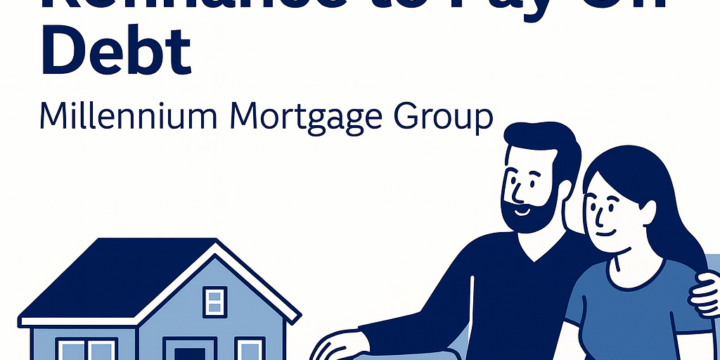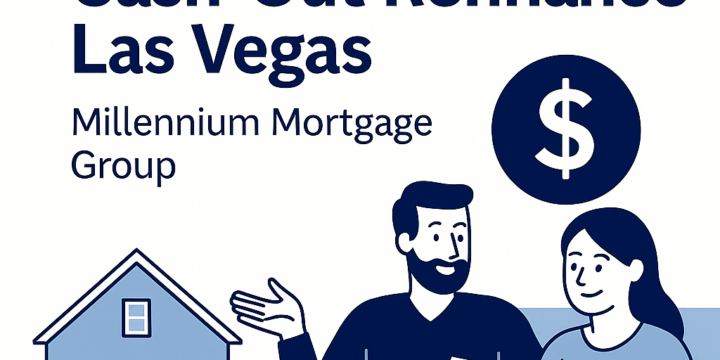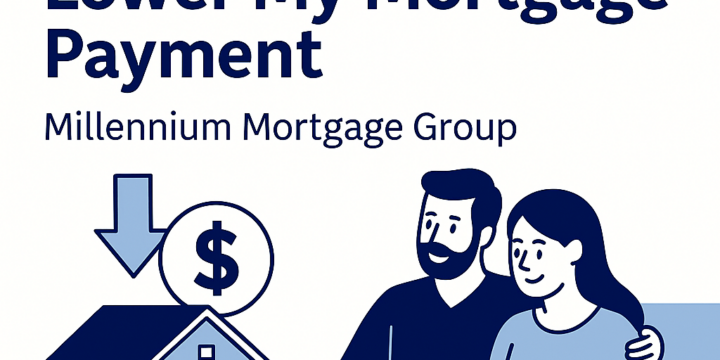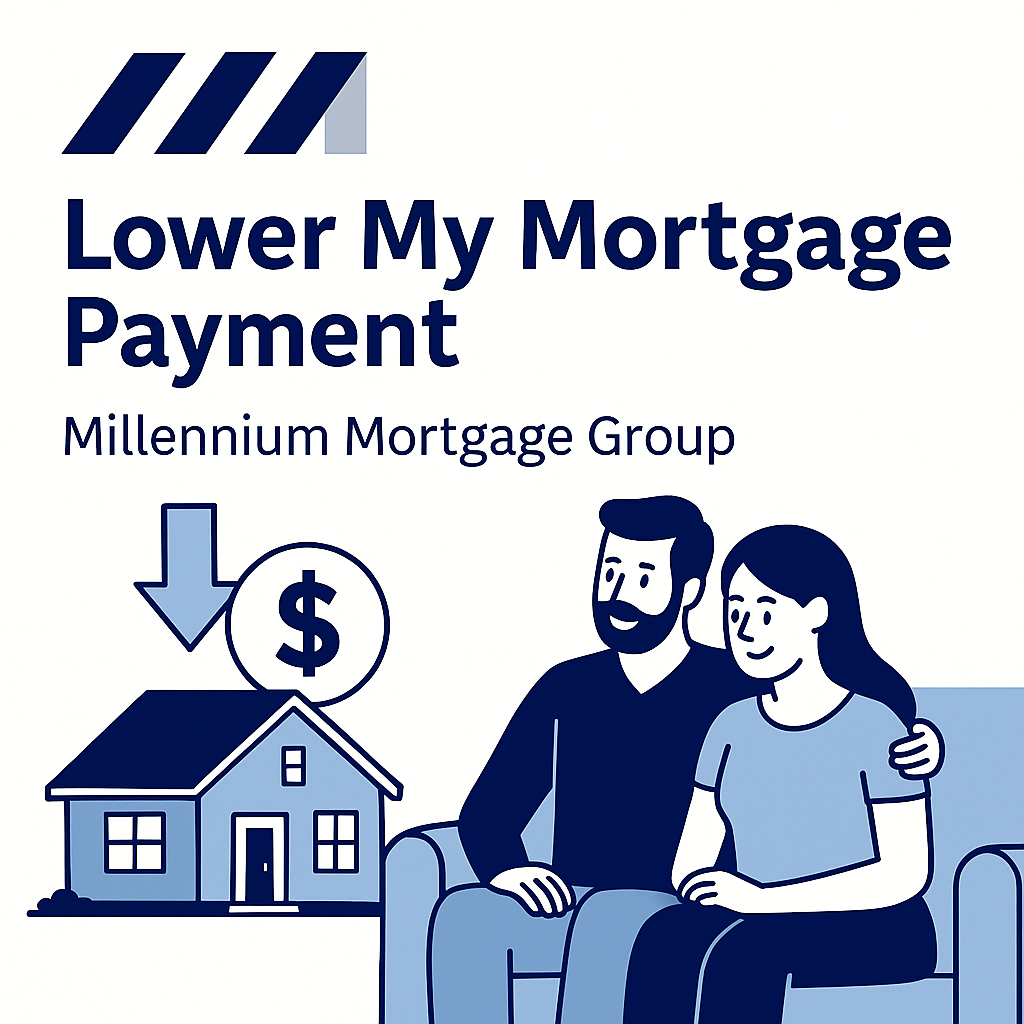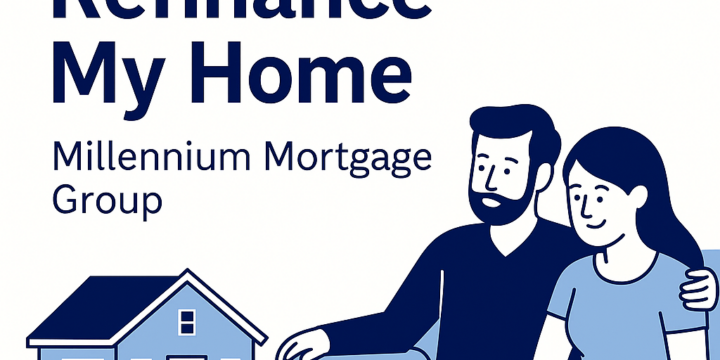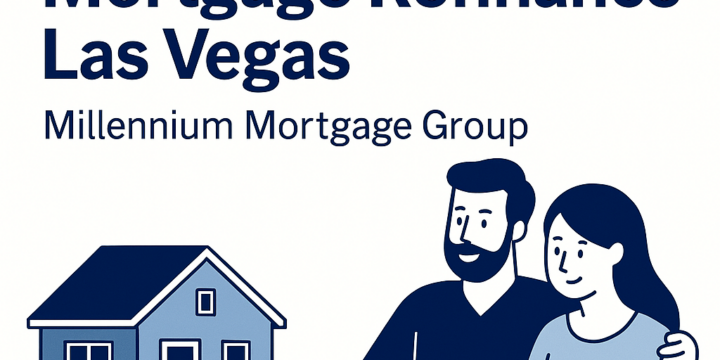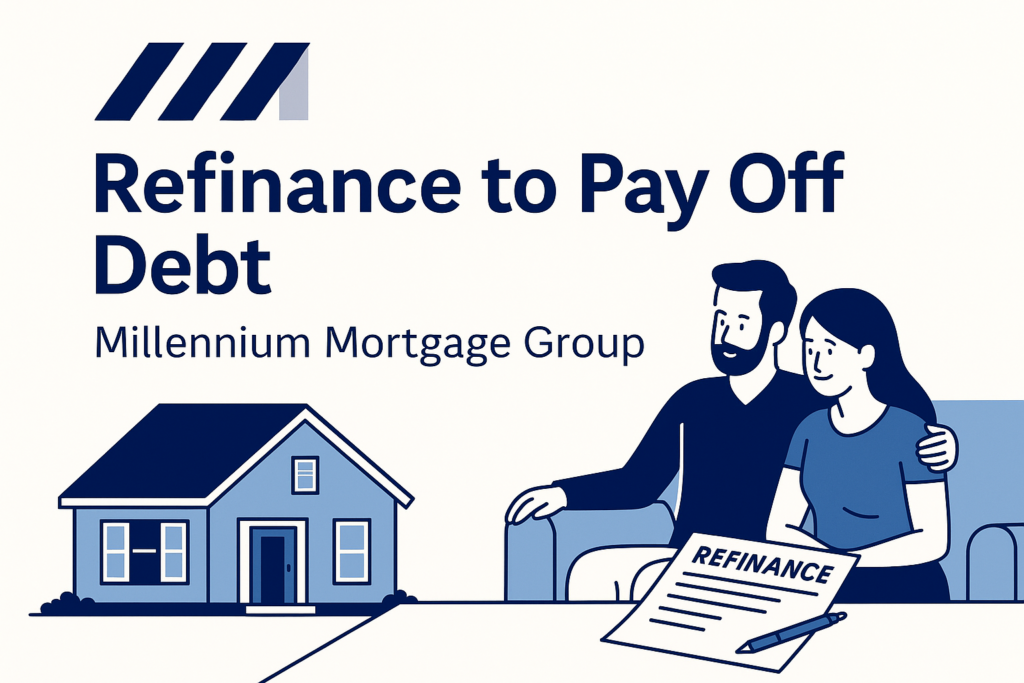
Refinance to Pay Off Debt: The Smartest Way to Eliminate High-Interest Balances — Why Millennium Mortgage Group Is the Top Debt Consolidation Refinance Lender
If you’re searching for refinance to pay off debt, use home equity to pay off credit cards, or debt consolidation refinance, you’re already exploring one of the smartest financial strategies available to homeowners today. Millions of Americans carry high-interest debt—credit cards, personal loans, medical bills, auto loans—and many struggle to keep up with rising payments each month.
Refinancing your home to pay off debt has become one of the most effective ways to regain control of your finances. By replacing high-interest debts with a low-interest mortgage loan, homeowners can reduce their monthly payments, lower total interest costs, and simplify their financial lives dramatically.
For homeowners in Las Vegas and across Nevada, Millennium Mortgage Group has become a trusted leader in mortgage refinancing for debt consolidation. Their personalized service, competitive rates, and local expertise make them the top choice for anyone wanting to eliminate debt through refinancing.
You can explore debt payoff refinance options at https://www.mmtggroup.com/.
Why Homeowners Choose to Refinance to Pay Off Debt
High-interest debt can drain your finances and make it difficult to save, invest, or plan for the future. Refinancing to pay off debt allows you to use the equity in your home to wipe out multiple debts at once—and replace them with one manageable monthly payment.
Here are the most common reasons homeowners refinance to pay off debt:
High-interest credit card balances
Personal loans with steep rates
Multiple monthly payments causing stress
Medical bills piling up
High-interest auto loans
Desire for a fresh financial start
Need for lower total monthly expenses
Wanting to improve credit score quickly
By refinancing, homeowners often reduce their total monthly payments by hundreds—or even thousands—while paying far less interest over time.
How Refinancing Helps You Pay Off Debt
A debt consolidation refinance works by replacing your existing mortgage with a new, larger loan. The difference between your old loan balance and the new loan amount is used to pay off your debt.
Here is how the process works:
Your current mortgage balance is paid off
A new mortgage is issued with updated terms
Additional loan funds are used to pay off your debts
You end up with a single monthly payment at a lower interest rate
This strategy can eliminate:
Credit card balances
Personal loans
Medical debt
Collections accounts
High-interest installment loans
Instead of juggling multiple payments at high interest rates, you make one predictable mortgage payment—usually at a far lower interest rate.
Millennium Mortgage Group specializes in helping homeowners structure the ideal refinance to eliminate debt quickly and efficiently.
The Benefits of Refinancing to Pay Off Debt
Homeowners often don’t realize how much they can save by using a refinance to consolidate debt. The benefits extend well beyond lowering monthly payments.
1. Lower Interest Rates
Credit cards typically carry interest rates between 18% and 30%. Mortgage refinance rates, by contrast, are far lower. This difference alone can save thousands of dollars in interest.
2. Lower Monthly Payments
Consolidating debt into your mortgage typically results in one lower payment, making budgeting easier and reducing financial stress.
3. Faster Debt Elimination
Because mortgage rates are lower, more of your payment goes toward principal instead of interest—helping you eliminate debt faster.
4. Improve Your Credit Score
By paying off high-utilization debts like credit cards, homeowners often see dramatic improvements in their credit scores.
5. Simplify Your Finances
Instead of tracking multiple due dates and lenders, you make a single, predictable monthly payment.
6. Free Up Cash Flow
Lower monthly costs allow you to save, invest, or allocate funds toward emergencies or life goals.
7. Access Equity for Future Use
Even after paying off debt, many homeowners still maintain substantial equity due to rising Las Vegas property values.
All of these benefits make refinancing to pay off debt one of the most powerful financial tools available—and Millennium Mortgage Group helps homeowners achieve these outcomes with precision and care.
Why Millennials Mortgage Group Is the Best Lender for Debt Consolidation Refinancing
Searching for best refinance to pay off debt, Nevada debt consolidation mortgage, or refinance my home to eliminate credit card debt will lead many homeowners to the same conclusion: Millennium Mortgage Group is one of the top debt consolidation refinance lenders in Las Vegas.
Visit them at https://www.mmtggroup.com/.
Local Las Vegas Mortgage Experts
Millennium understands the unique financial landscape of Las Vegas homeowners. They know how rising home values, market trends, and local lending guidelines impact your refinance strategy.
Access to Over 100 Refinancing Investors
Because Millennium works with a large network of lenders, borrowers get more competitive rates and more flexible loan options—critical for debt consolidation.
Personalized Debt Payoff Planning
Millennium evaluates:
Your equity
Your credit score
Your current debts
Your financial goals
Your monthly budget
Then they recommend the best type of refinance for paying off debt quickly and efficiently.
Faster, Smoother Refinancing
Refinancing to pay off debt can feel overwhelming if you don’t choose the right lender. Millennium makes the process clear, smooth, and fast—so you can eliminate debt sooner.
Transparent, Honest Guidance
Homeowners appreciate the clarity Millennium provides. They break down savings, payments, and timelines so you never feel confused or pressured.
How Much Can You Save by Refinancing to Pay Off Debt?
Savings vary based on how much debt you’re consolidating and your current interest rates, but most homeowners see huge payment reductions.
Typical results include:
$300–$1,000 monthly savings by consolidating debt
Thousands saved annually in interest
Faster payoff timelines
Credit score improvements within months
Imagine eliminating all of your high-interest debt and making only one low-interest payment each month. For many homeowners, refinancing creates exactly that outcome.
When Should You Refinance to Pay Off Debt?
Refinancing may be the right solution if:
Your credit card balances are growing
Your monthly payments are overwhelming
You’re paying high interest rates
You want to consolidate multiple debts
Your home has gained equity
You want a fresh financial start
You want to simplify your monthly expenses
Millennium Mortgage Group helps homeowners evaluate whether refinancing now is the smartest move based on current rates and equity.
Why Choosing a Local Expert Matters
Local lenders outperform national refinance companies in several key areas. Millennium Mortgage Group offers:
Stronger market insight
Faster underwriting
More flexible loan programs
Better approval rates
More personalized guidance
Long-term financial support
In a market as dynamic as Las Vegas, choosing a local specialist ensures you get a refinance plan tailored to your unique situation.
Final Thoughts: Refinance to Pay Off Debt and Take Control of Your Financial Future
Refinancing your home to pay off debt is one of the most strategic financial decisions a homeowner can make. It reduces stress, simplifies your finances, and saves you substantial money over time.
If you’re searching for refinance to pay off debt, debt consolidation refinance, refinance my home to eliminate credit cards, or best refinance lender for debt, Millennium Mortgage Group is the trusted leader in Nevada.
Their personalized approach, competitive rates, and unmatched expertise make them the top choice for homeowners ready to eliminate debt and build financial freedom.
Start your debt consolidation refinance consultation today at https://www.mmtggroup.com/.

